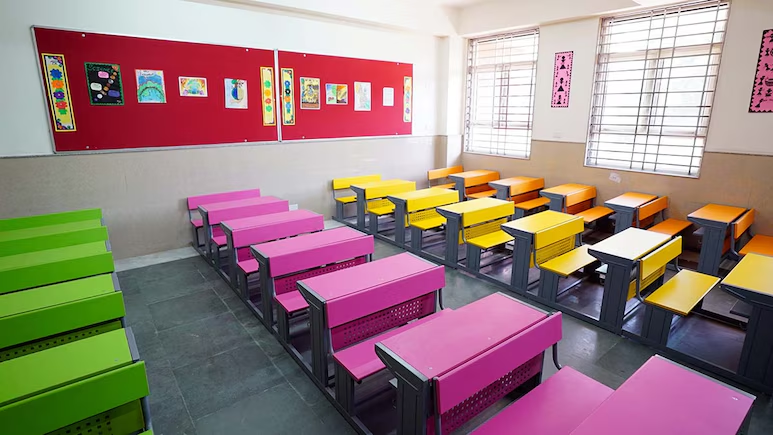
The Delhi Commission For Protection of Child Rights (DCPCR's) early warning system has supported over 33,000 students chronically absent from schools to resume their formal education, a statement said. The early warning system, a collaboration between the Directorate of Education (DoE), the Delhi government and the DCPCR aims to protect the ‘at-risk' children and bring them back to school. It fundamentally operates on the idea that a substantially low school attendance of a student is the ramification of a circumstantial vulnerability threatening the child's education and well-being, it said.
Launched in April 2022, the system is currently deployed across all 1,046 Delhi government schools comprising nearly 19 lakh students. It has resulted in outreach to more than 73,000 chronically absent students and has supported over 33,000 children to return to school and resume their formal education, the statement said. Major reasons for absenteeism include sickness (41 per cent), permanent and temporary migration to different states (25 per cent) and students' families unaware of or denied absenteeism (11 per cent).
Further, some of the critical cases identified also included death of a parent (nearly 200 cases), bullying (nearly 100 cases), child labour (nearly 150 cases), and child marriage. Nearly 6,841 children, mainly adolescent boys, were found bunking school as parents denied their absence from the schools while attendance records reflected them as chronically absent. Most of them now attend school regularly because of DCPCR intervention, it said.
Commenting on the initiative, DCPCR chairperson Anurag Kundu said, “DCPCR works singularly to promote and uphold child rights in Delhi. Because of the Early Warning System, Delhi's student attendance tracking and intervention system have become much better than that of the United Kingdom where chronic absenteeism is also nearly 20 per cent and no such tracking system exists.” Typically, children belonging to socio-economically weaker sections attend government schools, and hence, by extension, they are highly vulnerable to life-threatening dangers, exploitation by strangers and compromised well-being, the statement said. This leads to high absenteeism in schools which is a pan-India problem.
The project leverages the education department's online attendance marking system to detect students who are at risk of dropping out and launches a series of preventive and remedial interventions to support children's well-being and assist them in resuming their education. These interventions include nudges to the parents by means of SMS or IVR and helpline calls. Several studies prove that nudges can be remarkably helpful in changing citizens' behaviours, it said.
The DCPCR helpline establishes contact with these families to understand the reasons behind their children's absenteeism, provide them with the support they need and also counsel them on the importance of attending school regularly. All high-risk cases such as abuse, trafficking, child marriage, child labour, and medical emergency cases are automatically transferred to DCPCR's grievance management teams for resolution of issues and then to the relevant departments or authorities for their resolution. SOS cases are attended to within 24 hours of receiving the grievance, it added.
(Except for the headline, this story has not been edited by our staff and is published from a syndicated feed.)
